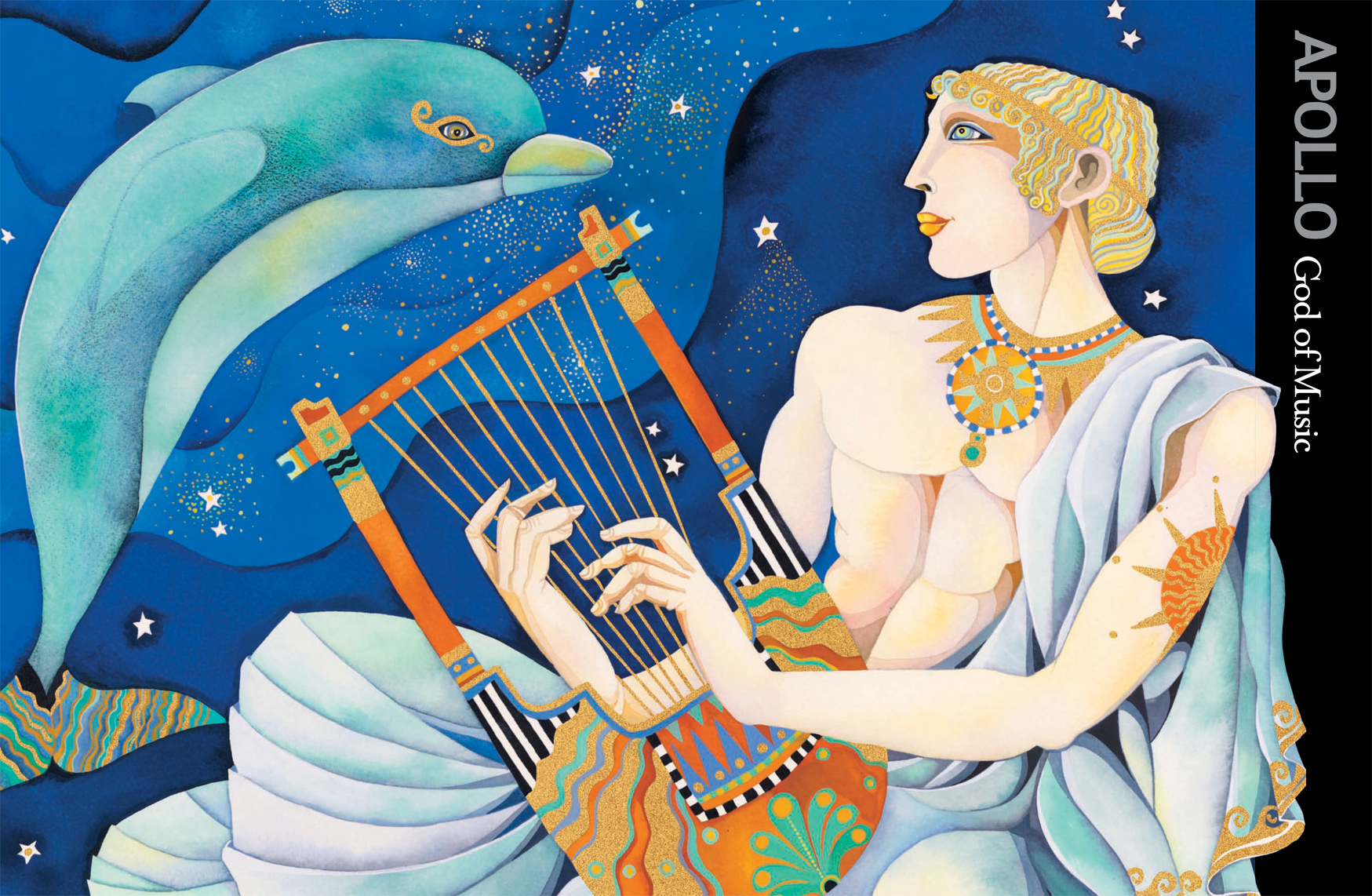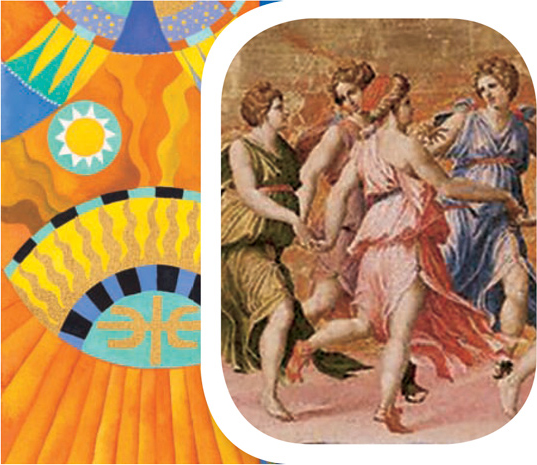


Leto, the daughter of Titans, walked in black robes. Not because she didn’t like colors. No, she adored colors. Leto’s favorite thing was walking after a downpour under a sky made marvelous by the trick of Iris and Helios. Iris was the granddaughter of Pontus and a Titan, and Helios, the sun itself, was the child of Titans. They made the heavens arch with rainbows. The desperate felt hopeful, the timid felt emboldened, the bold grew ready to charge. But Leto didn’t want to raise hopes herself, nor embolden others, nor be the target of a charge. Colors uplifted the spirit, but also agitated it. Black was kinder; black settled the spirit.
So it wasn’t her fault when Zeus’ eye fell on her. Everyone knew Zeus’ eye obeyed no limits. He was a brash, entitled, bossy fellow. Yet somehow Leto felt sympathy for him. It couldn’t be easy ruling the universe. Her fingertips fluttered on his cheeks and she cried inside for him. Besides, he was beautiful—so she accepted him as her husband.
When she found herself with child, she looked for a suitable birthing place. She expected welcome everywhere; this was Zeus’ child inside her. Instead, she was closed out. Rumor had it that the child would grow to be feared as much as Zeus. What? Gentle Leto would bear a god who made others tremble? How could it be? Certainly, some land somewhere would know this was a good child. She walked the earth, round and round, until her feet felt like stumps.
And then the pains came. They started in her belly, but they moved swiftly to her back. Excruciating. The goddess Hera, Zeus’ sister, came and put her arms around Leto and took her up to Mount Olympus. Hera whispered comfortingly. She pushed Leto’s lovely tresses away from her face and put cooling compresses on her cheeks and forehead. Leto understood Hera’s acts for what they were: the product of envy. Hera had become Zeus’ next wife shortly after he’d been with Leto. But Hera was not yet with child. It didn’t matter why Hera was helping her, though. Leto clung to her in raw need.
For nine days and nights Leto’s body struggled with the pains of labor. Then it dawned on her: Water! She needed to float in water. She rolled down the mountain to the sea, and the waves washed her to the little island of Ortygia, where a daughter, Artemis, slipped from her as easy as a stream running downhill. What relief! They set out traveling over sea back to Olympus, so Leto could present Artemis to her father. Yet almost instantly the pains returned. Leto barely made it to the rugged Isle of Delos in time. She dragged herself up the Cynthian Hill, her daughter tied to her chest, and, still kneeling, cast her arms around a lone palm tree, whereupon a second child came forth, leaping into the light.
Apollo! His very cry was music. He was strong and beautiful. Faultless.
Leto gave birth to the fast-growing Artemis on one island, then to her twin, Apollo, on another island. The second island was rocky and barren, but became a lush garden the moment the young god was born.
“Faultless,” came the chorus that echoed Leto’s thought. For all the goddesses had gathered, from the shyest nymph to grand Gaia. Zeus had had many children by many wives, but this was the first son, a true cause for celebration. They washed the boy, and swathed him in white, and fastened a golden band around him.
The rocky Isle of Delos burst into bloom with flowers of every color, challenging the rainbow.
Nearly overnight Apollo grew into everything his father hoped. He declared himself unswervingly loyal to Zeus and carried with him a bow and arrows to protect the will of his father. No one dared cross this archer, who never missed a mark. Yet there was something of his mother in him still. In peaceful moments, he played the lyre his younger half brother Hermes gave him. And he often called to his side the Muses, nine daughters of Zeus and the Titan Mnemosyne, who sang with harp voices that resonated in listeners’ hearts and danced with light, agile feet that made the surface of the Earth move in rhythm. Apollo saw them as his personal ornaments. And he often rode with the sun god Helios, source of colors, in his chariot across the wide sky. Apollo fancied himself as bright as the sun, and since he’d been born on the seventh day of the week, thereafter that day became known as Sunday.
THE DANCING Muses
Apollo is god of many things, including music, poetry, and other arts. He often walked with the Muses: nine graceful daughters of Zeus and the Titan Mnemosyne. Calliope inspired poets to write epic poems; Erato, love poems; Euterpe, nature poems. Thalia gave humor to those who wanted to cause laughter; Melpomene gave insight to those who wanted to cause tears. Urania helped people understand stars and planets; Clio helped them understand the past. Terpsichore led her sisters in dance, and Polyhymnia led the songs.

Leto doted on Apollo. When he was tired, she’d unstring his bow, close his quiver, and hang all on a golden peg in Zeus’ palace. She’d bid him sit and patted his shoulder while Zeus gave him nectar in a golden cup. It’s no surprise that Apollo became the haughtiest of gods.
